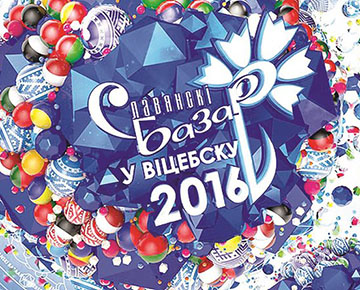There’s no doubt that the festival is one of the most popular in Belarus, uniting musicians and singers with fans, amidst a warm and friendly atmosphere. Head of State Alexander Lukashenko noted on the opening day that the whole world now knows about Belarus’ national culture and hospitable people, thanks to the festival. He commented, “Importantly, each year, the festival creates a true, sincere and spiritual holiday for millions of people: a feast of friendship, joy, pleasure and artistry, which lives long in our hearts. It combines classical and modern features, while respecting the traditions and freedoms of our artistic search,” the President stated.

Speaking of the festival’s legacy, not only to Vitebsk and Belarus but to the whole world, Mr. Lukashenko emphasised that the unique amphitheatre has hosted the boldest artistic innovations and has brought to light hundreds of talents, giving many young artistes their start in life, while allowing fans to enjoy performances by well-loved stars. It has transformed the city of Vitebsk into a modern cultural capital of Belarus and into a festival capital of the globe (headquartering the World Festival Association). It attracts thousands of tourists to our country, strengthening its reputation and bringing revenue into the economy. The number of participants grows annually and, this year, has performers of 45 nationalities.
Mr. Lukashenko views the city as an ideal venue, saying, “The Vitebsk Region is a unique centre of Slavonic spirituality, which boasts a long and unbreakable tradition of cultural construction and artistic development, rooted in the times of Yevfrosiniya Polotskaya and Frantsisk Skorina and continuing into the present.”

Many famous people were born in the Dvina River area, including several figures of culture and arts: composer Anatoly Bogatyrev, writers Mikhas Lynkov, Vladimir Korotkevich, Vasil Bykov and Petrus Brovka, playwright Alexey Dudarev, and artists and sculptors Yudel Pen, Marc Chagall, Mikhail Savitsky, Andrey Bembel and Zair Azgur.
The festival is as old as sovereign Belarus, having launched in the year that our Republic proclaimed independence. Mr. Lukashenko commented, “It has developed jointly, alongside the country, like a mirror, reflecting each stage of our new state’s establishment.” He added that the event is central to the Year of Culture, being celebrated in Belarus in 2016.
He continued, “This holiday embodies our spiritual wealth, as well as our openness and interest in the culture of various nations. Our three fraternal countries were once united: Belarus, Russia and Ukraine. We’ve become the core of this festival and, over the years, we’ve demonstrated our cultural unity, with wide success.” The Vitebsk festival is sometimes compared to the Olympic Games, being a venue for peace and kindness. To paraphrase Pierre de Coubertin: ‘Oh, Festival! You are the world!’
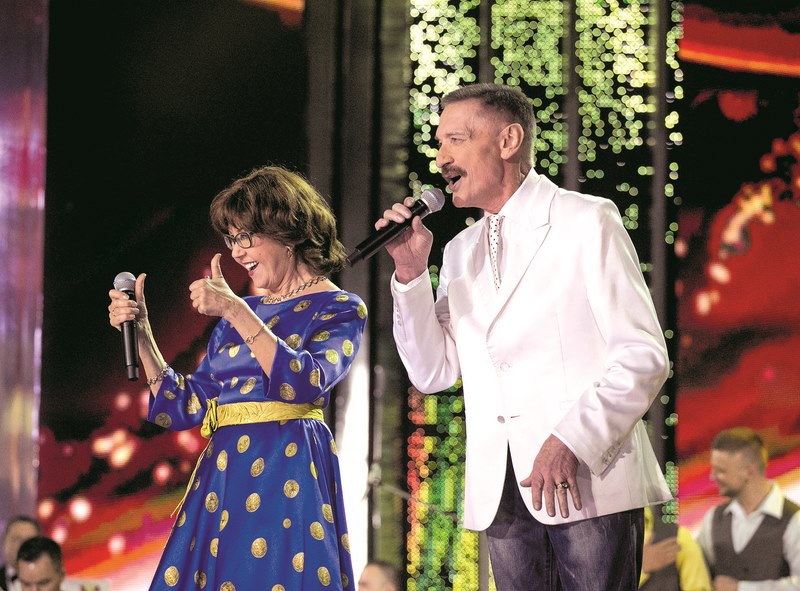
Launching the jubilee festival, the President distributed awards to those whose work has been closely connected with the Slavianski Bazaar. People’s Artiste Mikhail Finberg received the special ‘Through Art to Peace and Mutual Understanding’ Award, while the permanent host of the opening and closing ceremonies, Alena Spiridovich, received the Frantsisk Skorina Order. Oksana Romanyuk, a Ukrainian singer, received the same for her considerable personal contribution to strengthening and developing Belarusian-Ukrainian cultural ties. Director, stage director and producer Sergei Petrov became the third to receive this honorable award.
The traditionally spectacular opening ceremony featured many stars, gathering all who have, in previous years, claimed the Grand Prix or who have been laureates of the Young Pop Song Performers’ Contest. The Vitebsk stage helped launch their careers.
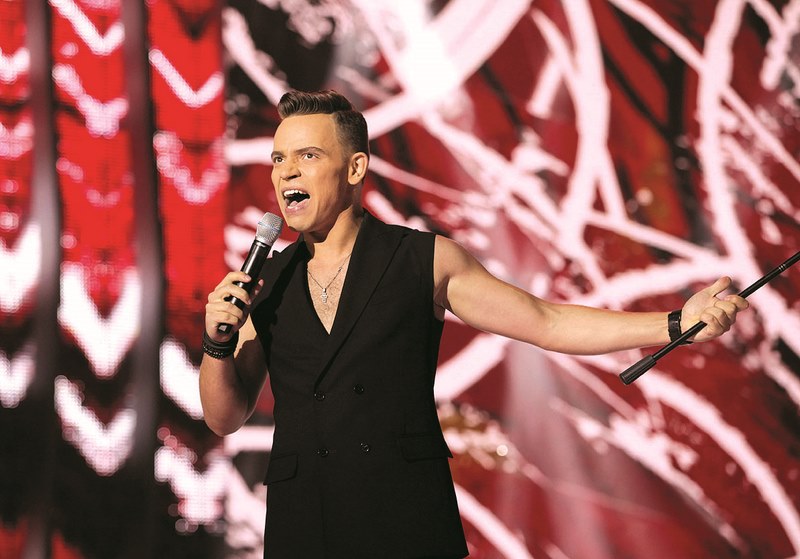
Alexey Gross of Belarus performs
Piotr Yelfimov, the Grand Prix holder of the 2014 Young Pop Song Performers’ Contest, recollects with nostalgia, “I was the first to sing at the Amphitheatre, in the year it was built. The victory contributed to my career, which later included many competitions — including Eurovision. Vitebsk audiences are the dearest to me and, with this in mind, I attend the festival every year with pleasure. This time, I’ll follow the competition attentively, as our Alexey Gross will perform a song I composed, called I Wish. Attending the rehearsal, I heard his performance and can say that he’s great. He’s worked hard, with support from our whole team.”
Veteran artistes unanimously agree, saying that it’s impossible to refuse a return invitation to Vitebsk. Alena Lanskaya — a true butterfly on the Vitebsk stage — admits, “My victory in 2011 gave me so much, from new acquaintances and artistic projects to the audience’s love. The Slavianski Bazaar helped me to gain faith in myself, inspiring me to take part in Eurovision. The Vitebsk venue is like an annual meeting of ‘alumni’ and friends. On arrival, I immediately met Ruslan Alekhno and Maxim Sapatkov (known as Max Lorens). I see them seldom, usually only during Slavianski Bazaar in Vitebsk.”
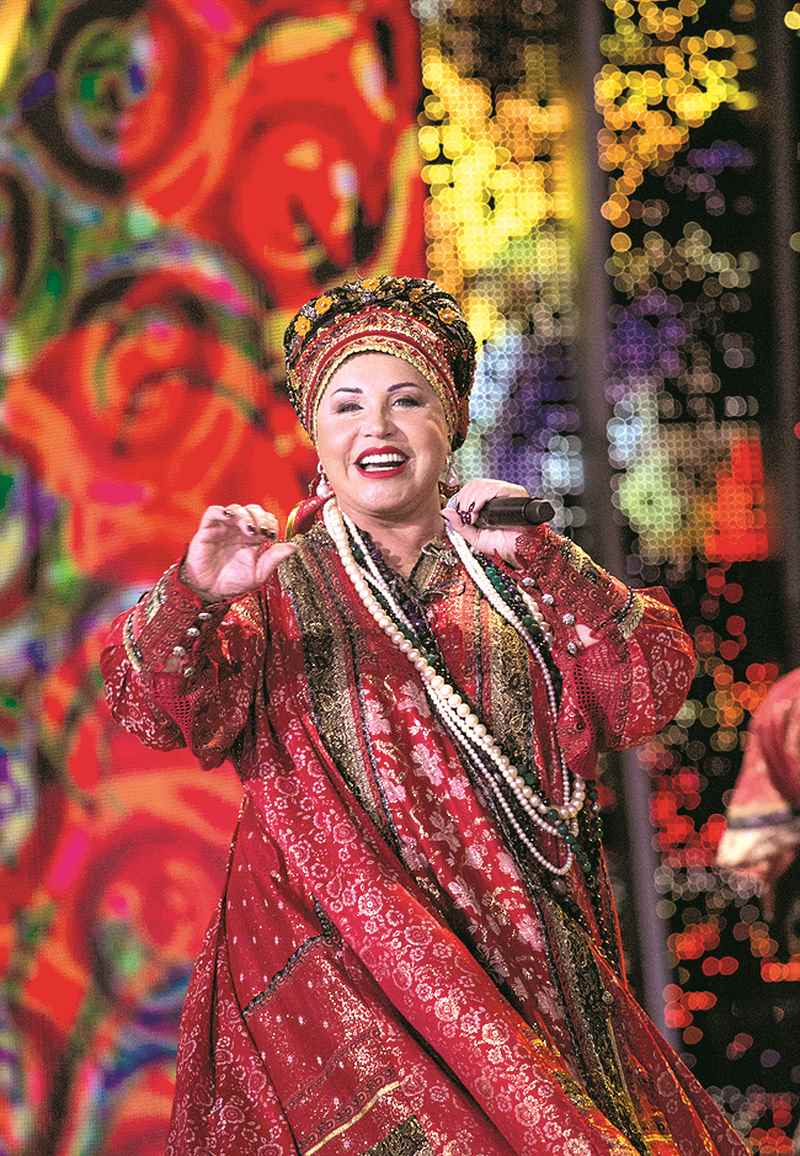
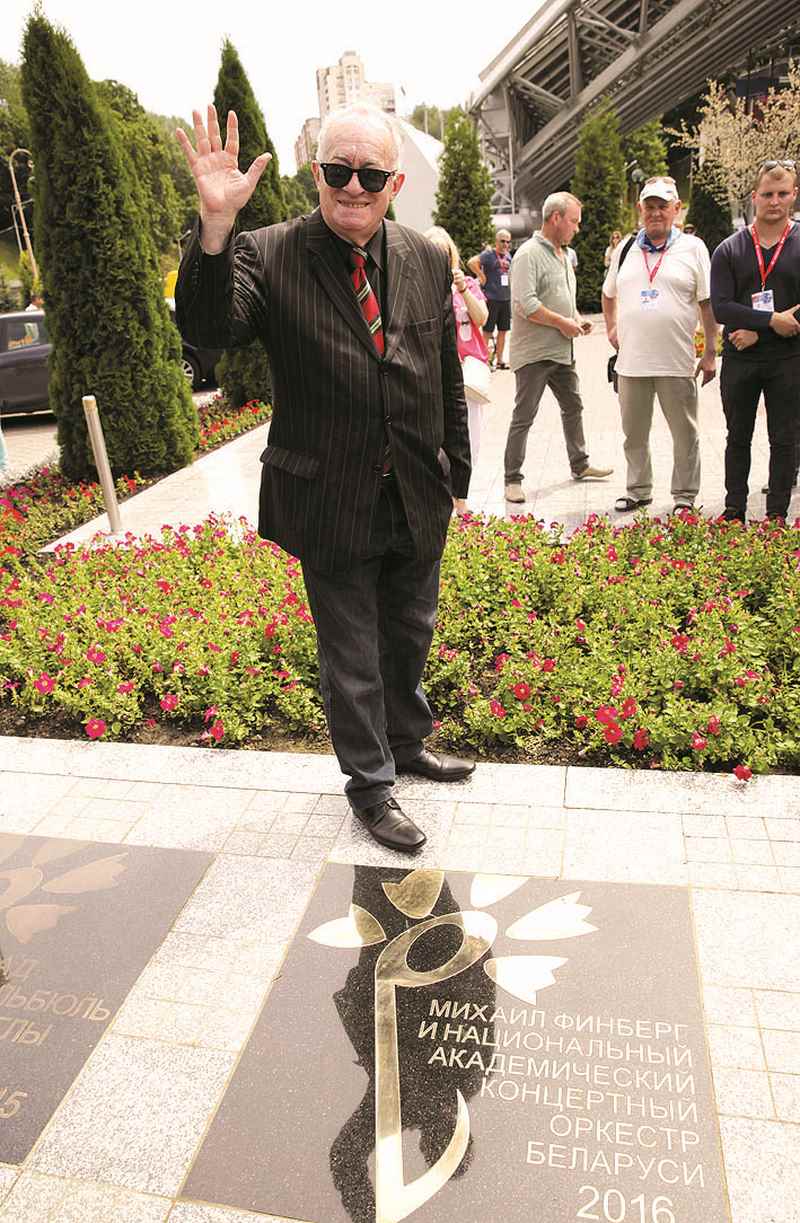
Mikhail Finberg
Max Lorens (who later performed under his true name of Maxim Sapatkov) won the Grand Prix in 2003. He recollects, “The Slavianski Bazaar helped me make a name for myself, rather than Moscow or rap singer Seryoga, as many might believe. Thirteen years ago, the festival was broadcast in many participating countries. I was noticed and later invited to various parties and concerts. That same year, Nadezhda Babkina invited me to take part in her solo concert at Rossiya Concert Hall. Just imagine: this was Russia’s major concert venue and I was surrounded by well-known artistes. Being a young performer, this was a real chance for me to demonstrate my abilities. I must admit that I expected more from the Slavianski Bazaar — for example, studio work or concert activity. Sadly, over the years of its existence, the festival has failed to become a powerful centre able to care for its winners. After my victory, I had to seek out paths of further development independently.”
Mexico’s Rodrigo de la Cadene helped audiences recollect the wonderful musical past on Saturday night, noting, “After my contest win, I returned to Mexico as a hero. Everyone was surprised. Though born in Latin America, I managed to win a Slavonic contest. I have no answer to this. Perhaps my Russian song helped. Two years after the competition, my career in Mexico is still progressing; I tour a great deal and give concerts on various continents. I’m delighted to have been part of the Slavianski Bazaar; it’s been a true miracle.”
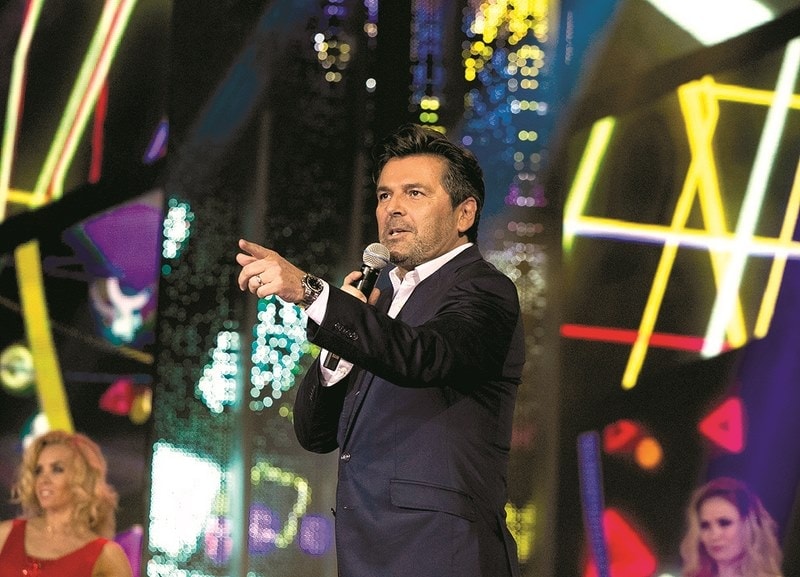
Festival guest Thomas Anders
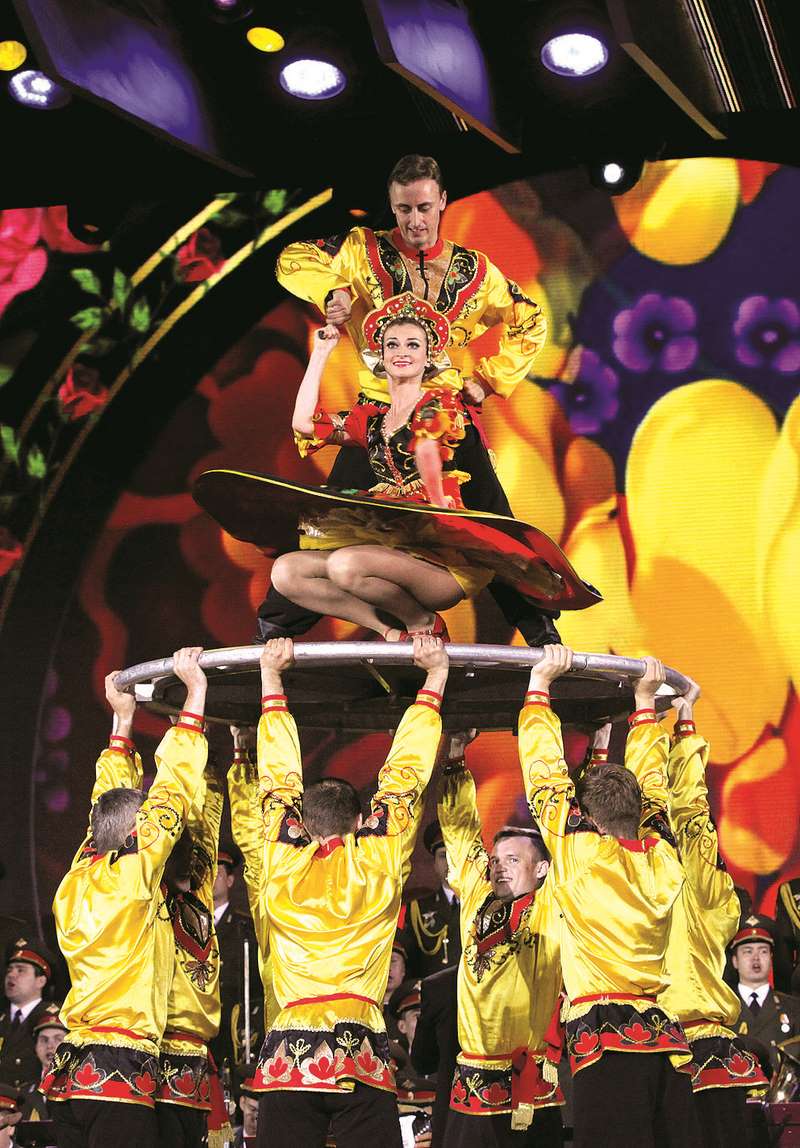
Bright colours of the festival
There’s no doubt that the Slavianski Bazaar International Festival of Arts, hosted by Vitebsk, helps strengthen trust and mutual understanding between Slavonic nations, as voiced on behalf of President Putin by Russia’s Culture Minister, Vladimir Medinsky, addressing guests and participants.
In 2016, Vitebsk is heartily welcoming talented artistes, musicians and performers from all over the world for the 25th time, as a centre of artistry and friendly communication. As is traditional, the festival programme is rich and diverse, including concerts, competitions, exhibitions, theatrical shows and festive celebrations. This major cultural event contributes to the spiritual unity of Slavonic nations, aiding their trust and mutual understanding. We cannot over emphasise its significance in developing international humanitarian co-operation. Moreover, in supporting talented young people, it helps them take their first steps in the world of performance.
By Alexander Pimenov

























